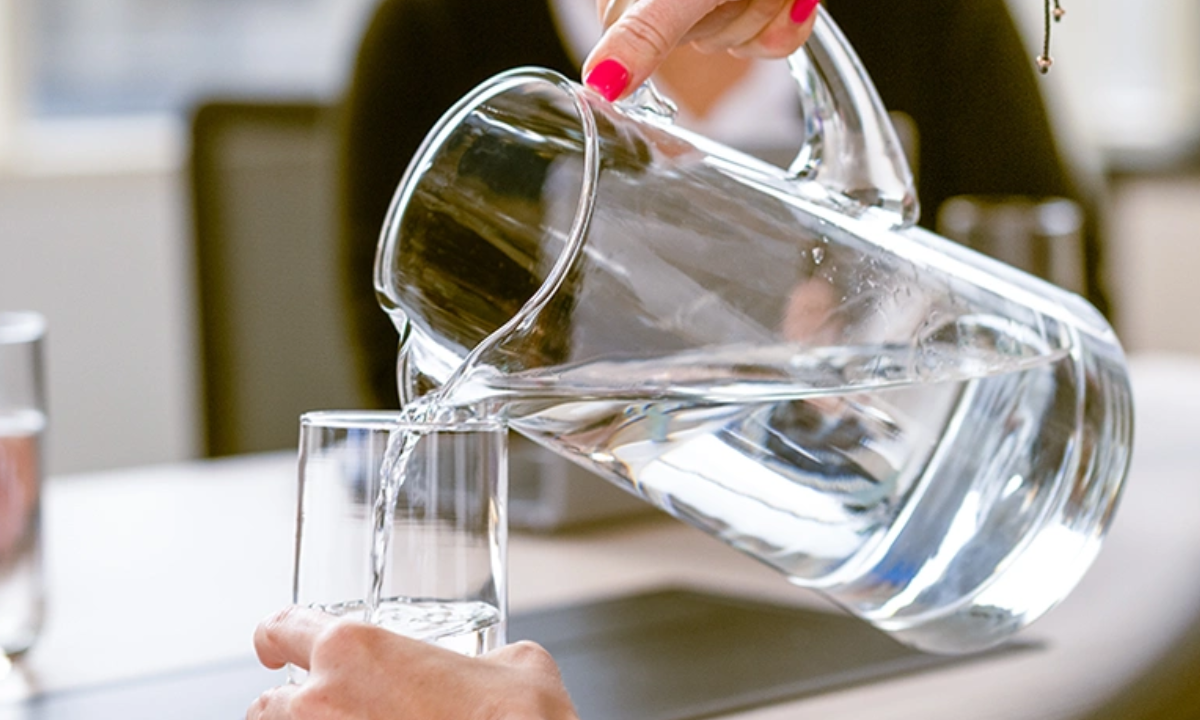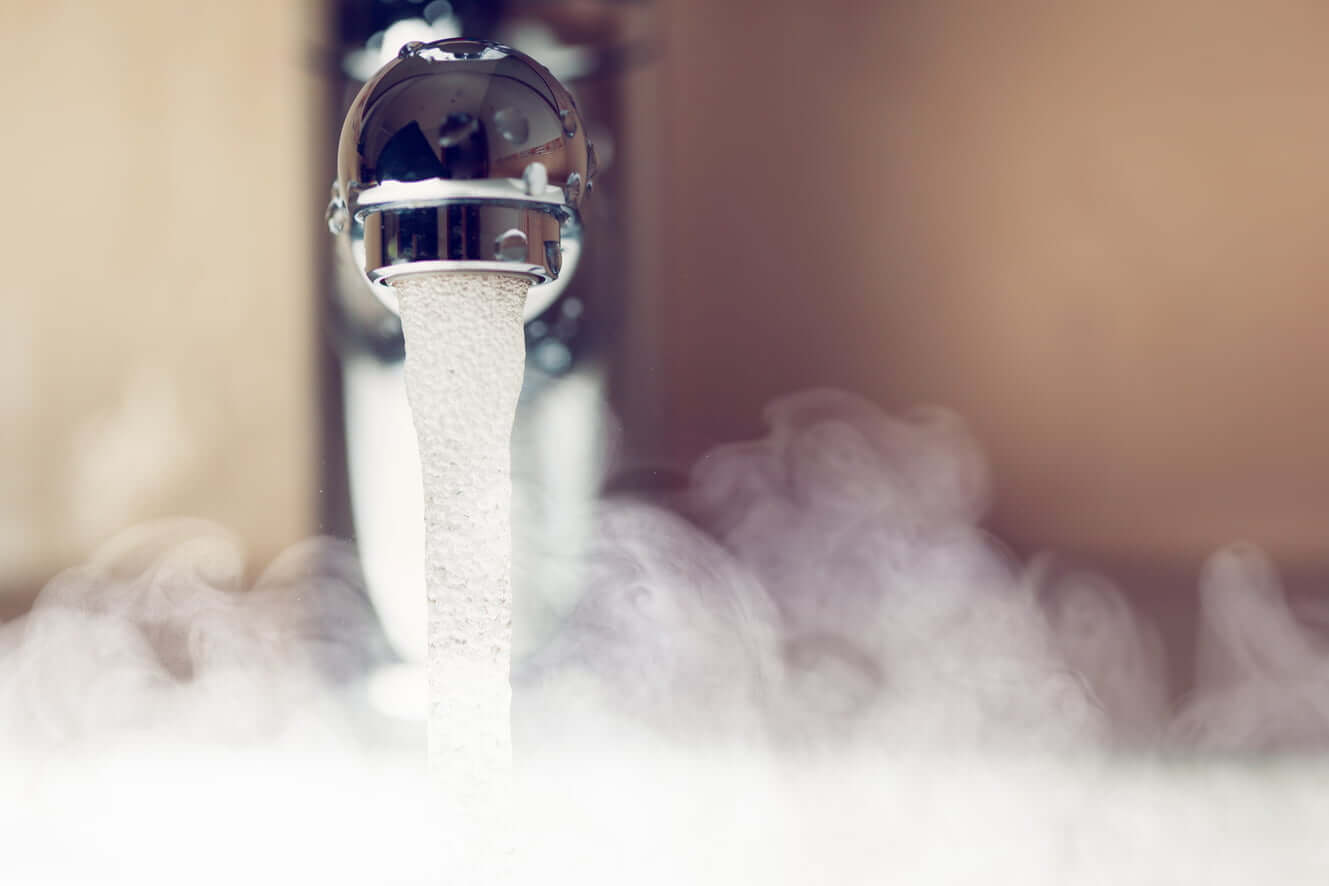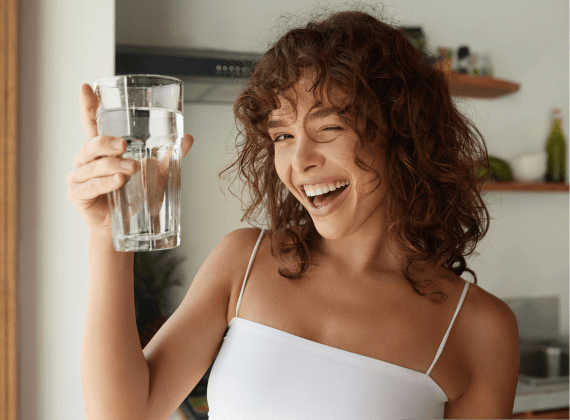
The UK is known for having some of the highest-quality tap water in the world, and Bristol is no different. Even directly from the tap, it is safe to drink water here. However, it’s not unusual to have some concern about the quality of your tap water, whether that’s an odd smell, cloudiness, or bad taste.
In fact, satisfaction with water quality has dropped by 7% since 2021, marking a significant lack of trust in recent years.
While water quality issues are typically resolved quickly, if you find you’re avoiding drinking water straight from the tap due to a bad smell or taste, you still have options.
Can you drink the tap water in Bristol?
Yes, the tap water in Bristol is entirely safe to drink for both locals and visitors. The water goes through an intense treatment process that ensures it is free from dangerous contaminants, including heavy metals and bacteria or viruses.
However, as with any tap water supply, there can be occasional water warnings issued to locals urging them to avoid drinking or cooking with tap water. This can be due to certain leaks or contamination, but it is fairly rare in the UK.
Still, some Bristol locals dislike the taste of tap water. This may be because Bristol has many hard water areas, where water contains high concentrations of minerals like magnesium and calcium.
Does the water in Bristol taste bad?
Of course, taste is subjective. While some may like the taste of hard water, others may prefer softened or filtered water with fewer contaminants.
In most cases, the water in Bristol will be tasteless, aside from a barely perceptible taste of chlorine, as this is added as part of the water treatment process.
If your water looks odd or tastes bad, this may indicate an issue with your plumbing. For example:
- If your water tastes like earth, this can mean it’s been left standing in your pipes for long enough to go ‘stale’. This typically occurs in summertime. It can be fixed by running your taps until the water tastes normal again.
- If your water tastes metallic, it may be contaminated with metals as a result of travelling through your pipes. This happens more often with hot water, which is why it’s encouraged to drink from the cold tap. Copper or zinc pipes are the main cause of this inconvenience, but the trace amounts of metal in your water are unlikely to harm your wellbeing. Contact Bristol Water if you are concerned about lead pipes or live in an older building with a persistent metallic taste to the water.
- If your water tastes like chemicals, this can mean it’s reacting with plastic or rubber in your plumbing system or appliances like your kettle. The taste often worsens after the water is boiled, but is not typically harmful to your health.
- If your water tastes like fuel, contact your local water authority as soon as possible, and avoid drinking it. This can indicate a leak or contamination that may be hazardous if not dealt with properly.
- If your water is discoloured and appears to be brown/orange/yellow, this is often due to ageing pipes contaminating your water with iron. More often than not, you can ‘flush’ the system by running the kitchen tap for up to 30 minutes.
While iron in these amounts won’t be bad for you, it likely won’t taste very nice. It is recommended you use a water filter or other source of drinking water until your sink runs clear again.
- Cloudy water is a common complaint that is often a combination of bubbles in your tap water, and/or extremely hard water. This can be solved by leaving water to rest for a few minutes after pouring your glass, or by using a water softener to eliminate surplus minerals discolouring the water.
Is there hard water in Bristol?
There are varying levels of water hardness across Bristol, but in general, the area is known for having some of the hardest water in the UK. Most areas are classed as having ‘moderately hard’ to ‘very hard’ water, indicating calcium carbonate levels between 151-300 mg/l.
The water that exits your taps will also be hard, as there are currently no water quality guidelines enforcing large-scale water softening. Indeed, hardness doesn’t necessarily impact water quality, but it can have a negative effect on your life by:
- Staining clothes and furniture
- Leaving limescale on surfaces, especially in your kitchen and bathroom
- Lowering the efficiency of appliances, especially via limescale buildup in your kettle
- Making it harder to wash and forcing you to use more soap, which costs more money in the long run
- Leaving limescale buildup in pipes and heating elements, which can eventually lead to plumbing issues.
Using a water softener can help keep your life hassle-free and save your household up to £550 per year on cleaning products and energy bills. Models like the HarveyArc cut your energy bills by up to 30% and come with a compact design that fits neatly under your kitchen sink.
Should you worry about contaminants in Bristol’s tap water?
Before we dive into Bristol’s tap water treatment process, it’s important to understand what contaminants you might encounter in certain tap water samples. The below substances may not be present in all tap water. However, they can present some concerns for your lifestyle if present in high concentrations.
If you find yourself concerned about any contaminants on this list, consider using a water filter or reverse osmosis (RO) filter for peace of mind. RO filters can reduce PFAS (forever chemicals) and regularly remove up to 99% of impurities, making them a better long-term solution than jug filters.
Limescale
As we’ve mentioned, Bristol’s water supply contains high levels of minerals, particularly magnesium and calcium, partly due to the area’s reliance on above-water sources like the River Severn. This means you’ll likely encounter limescale as part of using tap water in Bristol, unless you use a water softener to remove the minerals.
Bacteria & biological contaminants
In certain cases, bacteria, viruses, or protozoa can contaminate water sources. However, these rarely appear in tap water samples, as tap water is cleaned with chemicals like chlorine as part of the treatment process.
If you are concerned, check online to see if there are any drinking water warnings for your area. Likewise, you can reduce any biological contaminants in your tap water by boiling it or using a drinking water filter.
Chemical & metal contaminants
In older buildings, metals like iron, copper or (in rare cases) lead can get into the water supply. Chemical contaminants like herbicides, pesticides, forever chemicals, and microplastics can also enter the water supply through agricultural runoff into rivers and lakes, though these are unlikely to make it into your tap water.
Bristol’s tap water quality and treatment process
Bristol’s water treatment process mirrors that found across the UK, starting from the source.
- Water is collected from rivers, lakes, and boreholes.
- It is filtered or ‘screened’ to remove large debris like sticks and stones.
- Ozonation makes it easier to remove metal particulates, while clarification and filtration processes remove other contaminants, leaving the water clear and recognisable.
- UV treatment and chlorination remove any harmful bacteria or other organisms from the water, making it safe to drink.
With an additional £100 million of investment in Bristol’s water treatment confirmed, and more planned from 2020-2025, it is likely Bristol’s water quality will be enjoyed for years to come. This is especially necessary when considering Bristol’s rapidly-expanding population.
Tap water quality testing
Methods of tap water quality testing include:
- pH testing – to determine if the water has a neutral, alkaline, or acidic pH.
- Microbial testing – to confirm the presence of bacteria, viruses, or other small organisms.
- Turbidity testing – to confirm the water’s clarity.
Regular tap water quality testing is carried out by Bristol Water and Wessex Water, ensuring your tap water is safe to drink.
If you’re looking for greater peace of mind at home, you should try:
- Using a drinking water filter – These can reduce sand, dust, odour, sediment, and lead from your drinking water with relatively low maintenance required (e.g. one filter change every 12 months).
- Using a reverse osmosis filter – These will give you the best quality of water with a significantly improved taste due to the lack of contaminants. Models like the ZERO Reverse Osmosis system remove up to 99% of impurities, including bacteria and viruses.
- Installing a drinking water tap – These can provide on-demand hard or soft water according to your needs, with fewer impurities and less chlorine than the average tap.
How can you improve Bristol’s tap water quality?
Ultimately, the best way to improve your tap water quality is to add an extra layer of protection between the water treatment plant and the water in your glass.
A water softener can remove contaminants like calcium and magnesium from your water, saving you up to 64% on energy bills, as many appliances will function more efficiently without limescale build-up.
Meanwhile, water filters and drinking water taps can prevent other contaminants like bacteria, metals, and unwanted chemicals from entering your drinking water.
Used together, a softener and water filter combination is extremely effective at improving your water quality, saving money on bottled water, and providing peace of mind.


